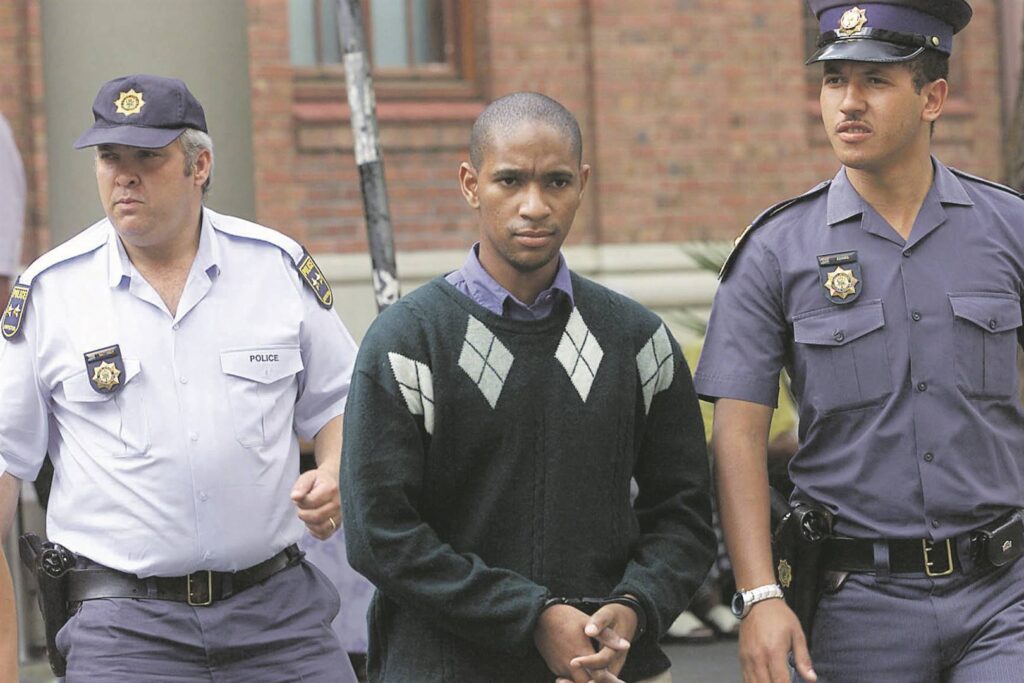Luyanda Mboniswa, the convicted murderer of Marike De Klerk, wife of the late former South African President FW De Klerk, is set to be released on parole on August 30 2023. The department of correctional services’ Singabakho Nxumalo confirmed Mboniswa’s parole placement 20 years after sentencing.
The impending release of Mboniswa has raised questions about the criminal justice system’s handling of high-profile cases and the balance between rehabilitation and the gravity of the crime committed.
Marike De Klerk, a prominent figure in South African politics and society, was tragically murdered by Mboniswa in her Cape Town apartment in December 2001. The shocking incident sent shockwaves across the nation and prompted a thorough investigation that eventually led to his arrest and conviction.
Mboniswa’s parole release has ignited controversy, with some arguing that his release undermines the severity of the crime he committed. Critics argue that the brutal nature of the murder, coupled with Marike De Klerk’s status as a public figure and the wife of a former president, necessitates a more stringent approach when considering parole for her convicted killer.
Mboniswa’s impending parole has reignited conversations about the criminal justice system’s effectiveness in addressing crimes of this magnitude. Questions have emerged regarding the criteria and factors that were taken into account when granting parole to an individual responsible for a high-profile and heinous crime.
The department statement reads as follows:
“In compliance with the Correctional Services Act‚ Mboniswa was considered for parole placement having served the minimum required time. The parole placement process started from the preparation of the profile by the case management committee and consideration by the correctional supervision and parole board.
“The national council for correctional services also dealt with the profile before its submission to the minister of justice and correctional services for a decision. The minister is empowered by section 78 of the Correctional Services Act to make a determination on those sentenced to life.
Nxumalo said upon release‚ Mboniswa “will be admitted into the system of community corrections‚ whereby he is expected to comply with specific set of parole conditions for the rest of his natural life”.
“He will be assigned a monitoring official to render supervision duties. Normal parole conditions will apply‚ such as being restricted to his magisterial district. He is also not allowed to have contact with the family of the victim and shall not change his residential address without informing the monitoring official.”
As the end of August approaches, the nation remains divided on the release of Luyanda Mboniswa. The case brings to light broader discussions on justice, punishment, and the role of the criminal justice system in addressing crimes of this nature. While Mboniswa’s release marks a significant development, the debates it has sparked are likely to endure as South Africa grapples with the complexities of balancing justice with the prospect of rehabilitation.
